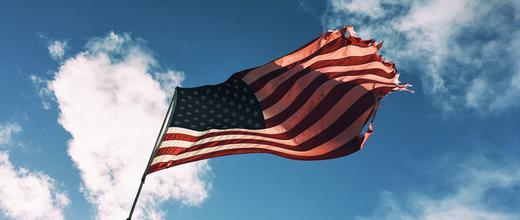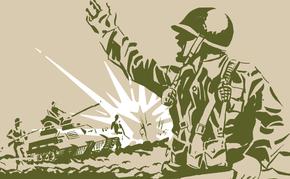The views expressed in our content reflect individual perspectives and do not represent the authoritative views of the Baha'i Faith.
With the killings of Ahmaud Arbery, Breonna Taylor, and George Floyd, America has once again confronted its legacy of injustice and oppression. And to be silent is to be complicit. That’s why for our June 9 episode of BahaiTeachings Live, we hosted a panel discussion about what Baha’is believe is the most vital and challenging issue facing Americans today — racism — and what we can do about it.
Panelists included Anthony Outler, the owner of Epic Empowerment Consulting; Eric Dozier, creative director of ericDozier Music & Education; Leili Towfigh, principal of Leili Art and Design; Liz Dwyer, managing editor of BahaiTeachings.org; Makeena Rivers, staff writer of BahaiTeachings.org; Marjan Yavari, founder of Be On Edgewood; PJ Andrews, race discourse officer at the Baha’i National Center; and Michael O’Neal, executive director of Parent University. Our co-founder and editor-in-chief Payam Zamani moderated and singer-songwriter Kristin Barnes kicked things off with a musical selection.
The conversation centered on what Baha’is believe we need to do to bring about race unity. Panelist Anthony Outler read an excerpt from a letter written in 1938 by Shoghi Effendi, one of the central figures of the Baha’i Faith, which addressed the responsibility of white people:
“Let the white make a supreme effort in their resolve to contribute their share to the solution of this problem, to abandon once for all their usually inherent and at times subconscious sense of superiority, to correct their tendency towards revealing a patronizing attitude towards the members of the other race, to persuade them through their intimate, spontaneous and informal association with them of the genuineness of their friendship and the sincerity of their intentions, and to master their impatience of any lack of responsiveness on the part of a people who have received, for so long a period, such grievous and slow-healing wounds.”
With that in mind, Payam asked the panelists who identify as white — Leili Towfigh and Marjan Yavari — “What does it mean to give up your ‘inherent and at times subconscious sense of superiority’?”
Leili Towfigh said that working on her inherent sense of superiority is a daily battle because she makes new mistakes every day. But her beliefs as a Baha’i inspire her to strive to root out her prejudice. “I had a friend years ago who had, on the cover on his notebook, a sticker that said: Racism is a disease. Getting sick was not our fault, but getting well is our responsibility,” she said.
Marjan Yavari shared that because she immigrated from Iran, she didn’t know about the history of oppression in this country when she first moved here. So she started educating herself and having conversations with her friends on the subject. “Every day, I go with a posture of complete humility,” Marjan said. “I learned to accept the moments that I am uncomfortable.”
“It’s so critical for us to recognize that the inherent sense of superiority that shows up is not just a one-on-one kind of thing,” said Liz. We are “grappling with a system that is steeped in an inherent sense of superiority.”
And, added Anthony Outler, “It’s important that there is this awareness in the environments that we go in as black people of how white supremacy may operate in that space.”
The panelists also discussed what Shoghi Effendi said, using the vocabulary common in the 1930s, is the responsibility of black people:
“Let the Negroes, through a corresponding effort on their part, show by every means in their power the warmth of their response, their readiness to forget the past, and their ability to wipe out every trace of suspicion that may still linger in their hearts and minds…Let neither think that anything short of genuine love, extreme patience, true humility, consummate tact, sound initiative, mature wisdom, and deliberate, persistent, and prayerful effort, can succeed in blotting out the stain which this patent evil has left on the fair name of their common country.”
What stood out to Makeena Rivers was the need for persistence. “We’re all energetic about this in this moment, but what does this mean now, in six months, or when the headlines change?” said Makeena. She expressed her hope for humanity to maintain this energy and interest in social justice in the future.
PJ Andrews noted that segregation continues to perpetuate racial prejudice. “Separation breeds ignorance and fear, which reinforces these walls of prejudice,” said PJ. To change this, we need to be intentional about the relationships we create.
Eric Dozier said that it’s not only integration that is needed, but genuine love. He shared that the following quote by Abdu’l-Baha, the son of Baha’u’llah, the prophet and founder of the Baha’i Faith, always gives him guidance on this subject:
“Do not be satisfied until each one with whom you are concerned is to you as a member of your family. Regard each one either as a father, or as a brother, or as a sister, or as a mother, or as a child. If you can attain to this, your difficulties will vanish, you will know what to do. This is the teaching of Bahá’u’lláh.”
“One of the reasons I’m drawn to this quote is because it doesn’t give us this one canned answer to the issue, but it says to me and infers that relationships breed creativity,” said Eric. “You think about what you do for people that you love, you think about what you would do for your mother or father or child, and how creative you get when they are experiencing tribulation or difficulty. And if we are able to attain that level of relationship, we would refuse to let our brothers and sisters get choked out in the streets. There are certain things that you don’t let happen to people that you love.”
Payam shared that he believes love, unity, and justice are needed for the United States to fulfill its destiny. “But this spiritual destiny is not just going to come about,” said Payam, until “we have tackled this biggest challenge that we’re told is America’s most challenging issue.”
The panelists agreed that ultimately, humanity will triumph over racism. “We win this,” said Michael O’Neal. “Mankind wins in the end. The hopelessness is useless. It will be hard, but we will win this.”

















Comments
Sign in or create an account
Continue with Facebookor